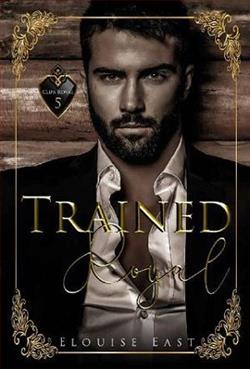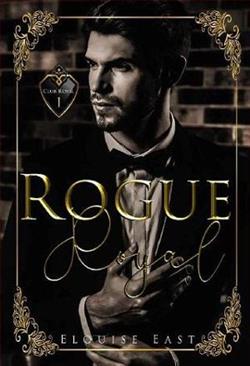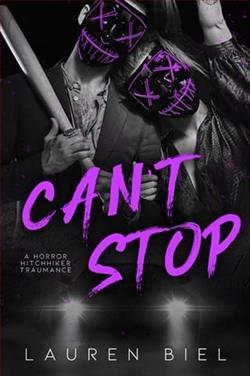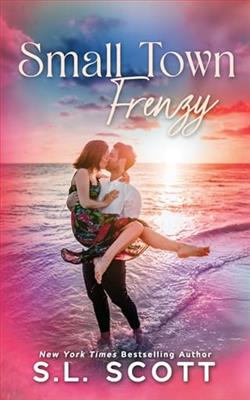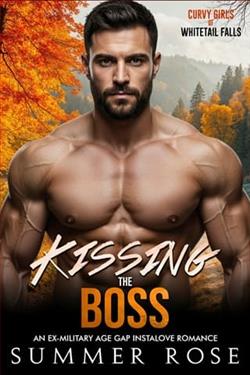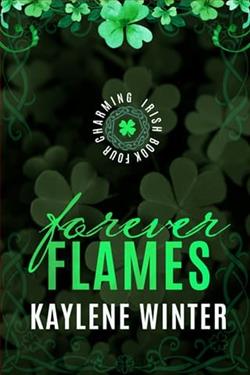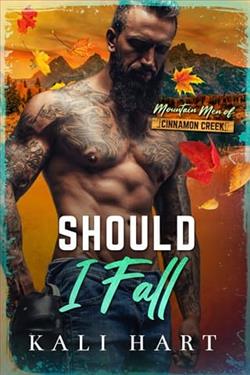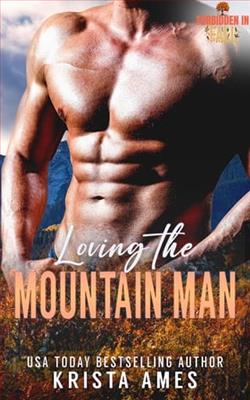Page 9 of Redemption of a Ruthless Billionaire
‘Wh-what?’ she bleated, like a stupid lamb for slaughter.
‘I mean, obviously you’re not,’ he said, frowning at her as if he’d just noticed her stricken expression and was assessing what it meant.
‘No,’ she choked, ‘not a man. Thanks.’
‘It was dark and you’re wearing unisex clothing.’ He was hanging up his coat, drawing attention to the flex of muscles along his back.
‘This isn’t unisex.’ Sybella looked down at her considerable padded bulk. ‘It’s oyster-pink.’
His expression told her he didn’t make the connection.
‘Pink is traditionally a female colour,’ she spelt out.
He continued to look doubtful.
She huffed out a breath. ‘Look, this parka was clearly marked “Women Size L” on the rack,’ she insisted. Then stopped.
Had she just informed him she was size large?
Yes—yes, she had.
‘It was dark,’ he repeated, and the frown was back.
He closed the door behind him, crowding her back out into the corridor.
When she picked up her bruised and bloodied self-esteem from the floor, Sybella would remind herself she was tall, wearing layers and a ski mask, and he was right—it was dark. Her throat felt tight, because it wasn’t that dark.
Sybella only felt worse when he took the main stairs with an effortless stride that left her labouring as best she could in his wake, because by now she was not only wet through, the all-weather gear was making it difficult to move freely.
It begged the question how people climbed mountains in these things when she was finding a staircase hard going.
She was a little out of breath at the top.
‘You need to get a bit more exercise,’ he said, stopping to look down at her. ‘You’re out of shape.’
Really? That was what he had to say to her? The only time she ever got to sit down was on a quiet afternoon at the records office where she worked.
‘Shouldn’t you be on your way up to see your grandfather?’ she said instead, no longer at all keen to explain anything to him. She just wanted to go home. Preferably to a hot bath where she could enjoy a little cry.
‘He’ll keep.’
He’ll keep? What sort of grandson was he? Well, she knew the answer to that. The absent kind. She scowled at his back. If he hadn’t been absent she wouldn’t be in this fix.
Sybella followed him down the Long Gallery. She regularly conducted tours of this room, pointing out the features, recounting the history of the house. She suspected Mr I-thought-you-were-a-man wouldn’t be very happy if he knew.
There were six Jacobean chairs piled up in the middle of the room, awaiting a home.
‘What in the hell?’ he said, circling them.
She opted for a cheerful, ‘Don’t you love these? Your grandfather had them brought down from storage in the attics. We haven’t worked out where to put them.’
‘We?’ He rounded on her. ‘You’re interested in the contents of the house?’
As if she were some kind of criminal. Sybella found herself backing up a bit. ‘No, I’m interested in the past.’
‘Why?’
A little flustered by the way he was looking at her, all suspicious and hard-eyed but making her feel very much a woman despite what he’d said, she found herself struggling for an answer. ‘I don’t know. I just am.’
He looked unimpressed.
She had to do better. She rummaged around for something he’d believe. ‘If you grew up like I did in a very modern house in a relentlessly upmarket housing estate you’d see the beauty in old things too.’
He looked skeptical.
‘It was the most soulless place on this green earth. I knew from an early age there had to be something better. More meaningful.’
Sybella took a breath, realising she’d told him a little more than she had meant to.
‘Why does furniture have more meaning if it’s old?’
‘Because old things have stories attached to them, and the furniture that’s survived tends to have been made by craftsmen and women. Artists.’
‘You’re a romantic,’ he said, again as if this were a crime.
‘No, I’m practical.’ She’d had to be. ‘Although I guess as a child I read books about other children who lived in old houses and fantasised that might be me one day.’








